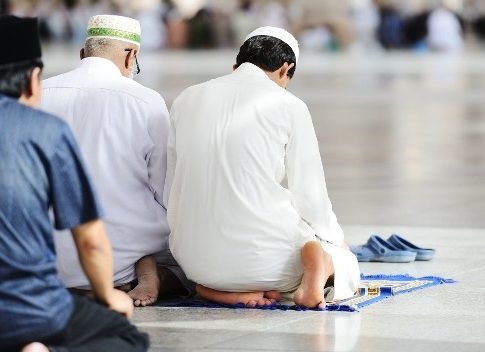Prayer (Salah) in Islam is not just a ritual; it is the essence of a Muslim’s devotion and submission to Allah. The five daily prayers are divinely scheduled acts of worship that not only strengthen our connection with the Creator but also guide us in living a disciplined and balanced life. Salah is more than just an individual act; it is a communal and universal obligation, reminding Muslims worldwide of their shared faith.
The Quran emphasizes the importance of Salah repeatedly, as Allah says:
“Indeed, prayer has been decreed upon the believers a decree of specified times.” (Surah An-Nisa: 103)
This verse highlights the significance of adhering to the prescribed timings of Salah. In this comprehensive blog, we’ll explore the deeper meanings, benefits, and wisdom of the specific times of Salah and enrich our understanding with references from the Quran and Hadith.
The Five Daily Prayers and Their Spiritual Significance
1. Fajr (Dawn Prayer)
- Time: From the break of dawn until just before sunrise.
- Spiritual Essence:
Fajr represents the purity of a new day and the renewal of faith. It is the time when the stillness of the early morning allows a believer to focus solely on Allah. The Quran beautifully highlights the importance of this time:“And establish prayer at the two ends of the day and at the approach of the night. Indeed, good deeds do away with misdeeds. That is a reminder for those who remember.” (Surah Hud: 114) - Hadith Reference:
The Prophet Muhammad (PBUH) said:
“Whoever prays the two cool prayers (Fajr and Asr) will enter Paradise.” (Bukhari and Muslim)
- Reflection:
Fajr cultivates a habit of early rising and spiritual reflection. It reminds us to start the day with gratitude and mindfulness, aligning our hearts with Allah’s guidance.
2. Dhuhr (Midday Prayer)
- Time: After the sun passes its zenith until the shadow of an object is equal to its length.
- Spiritual Essence:
Dhuhr prayer serves as a midday pause, reconnecting us with Allah amid our busy schedules. It fosters a sense of balance between worldly duties and spiritual obligations.
The Quran mentions:“So exalt Allah when you reach the evening and when you reach the morning.” (Surah Ar-Rum: 17) - Hadith Reference:
The Prophet Muhammad (PBUH) said:
“The heat of midday is from the Hellfire, so delay the prayer until it cools down.” (Bukhari)
- Reflection:
This prayer is a reminder to take a moment of calm and gratitude during a hectic day. It recharges the spirit and serves as an anchor for productivity.
3. Asr (Afternoon Prayer)
- Time: From when the shadow of an object is equal to its length until just before sunset.
- Spiritual Essence:
The Asr prayer represents perseverance and steadfastness in worship. It is often seen as the most challenging prayer to offer on time due to its placement in the late afternoon. The Quran underscores its importance:“Guard strictly the prayers, especially the middle prayer, and stand before Allah with obedience.” (Surah Al-Baqarah: 238) - Hadith Reference:
The Prophet Muhammad (PBUH) said:
“Whoever misses the Asr prayer intentionally, his deeds will be rendered null and void.” (Bukhari)
- Reflection:
Asr teaches us resilience and commitment, reminding us that no worldly task should distract us from our duty to Allah.
4. Maghrib (Evening Prayer)
- Time: Immediately after sunset until the twilight disappears.
- Spiritual Essence:
Maghrib marks the end of the day and symbolizes gratitude for the blessings of the day. The Quran refers to this time of transition:
“And glorify the praises of your Lord before the rising of the sun and before its setting.” (Surah Qaf: 39)
- Hadith Reference:
The Prophet Muhammad (PBUH) encouraged offering Maghrib prayer promptly, saying:“My nation will always be upon goodness as long as they do not delay the Maghrib prayer until the stars appear.” (Abu Dawood) - Reflection:
This prayer is a moment to reflect on the day’s deeds, seek forgiveness, and show gratitude for Allah’s provisions.
5. Isha (Night Prayer)
- Time: From the disappearance of twilight until midnight or just before dawn.
- Spiritual Essence:
Isha signifies closure and preparation for the peace of the night. It also opens the door to voluntary night prayers, such as Tahajjud. Allah says in the Quran:
“And from [part of] the night, pray with it as additional [worship] for you; it is expected that your Lord will resurrect you to a praised station.” (Surah Al-Isra: 79)
- Hadith Reference:
The Prophet Muhammad (PBUH) said:
“If the people knew the reward of praying Isha and Fajr in congregation, they would come to them even if they had to crawl.” (Bukhari and Muslim)
- Reflection:
Ending the day with Isha instills a sense of serenity, helping the believer to rest with a heart at peace.
READ MORE: The Ultimate Guide to Performing Salah: A Step-by-Step Guide for Every Muslim
The Wisdom Behind Prayer Times

1. Synchronizing with Nature
Salah times are aligned with natural phenomena, reminding us of the Creator’s mastery over the universe. The rising sun, the zenith, and the twilight all signal a call to prayer, deepening our connection with Allah’s creation.
2. Guarding the Soul
Each prayer time acts as a spiritual checkpoint, ensuring that a Muslim remains conscious of their duties and avoids distractions or sins.
3. Building Discipline
The fixed times of Salah teach punctuality and time management, which are essential for both personal and professional success.
4. Maintaining Balance
By dividing the day into spiritual intervals, Salah fosters a balanced approach to life, ensuring that neither material pursuits nor spiritual obligations are neglected.
More Quranic and Hadith References
- Quranic Emphasis on Salah:
- “Establish prayer at the two ends of the day and at the approach of the night.” (Surah Hud: 114)
- “And establish prayer and give zakah and bow with those who bow [in worship and obedience].” (Surah Al-Baqarah: 43)
- Hadith on Salah’s Virtues:
- The Prophet (PBUH) said:
“The first thing for which a person will be brought to account on the Day of Resurrection is the prayer.” (Abu Dawood)
- He also said:
“Between a person and disbelief is leaving the prayer.” (Muslim)
Practical Tips for Consistency
- Leverage Technology: Use apps like Muslim Pro or Athan to set reminders for prayer times.
- Involve Family: Praying together strengthens bonds and encourages accountability.
- Seek Community: Join a local mosque or prayer group for motivation.
- Focus on Rewards: Reflect on the immense rewards promised for timely prayers.
Key Takeaways
- Divine Timings: Each prayer is uniquely tied to a specific time of the day, reinforcing our connection with nature and Allah.
- Consistency Matters: Adhering to prayer times fosters discipline and spiritual growth.
- Salah as a Lifeline: Regular prayers are the foundation of a balanced, fulfilling life.
Did You Know?
- Salah vs. Salat: Both spellings are correct, and the choice depends on how the word is pronounced in Arabic within a sentence. If the word is paused on, it is pronounced Salah, but if the sentence continues, it becomes Salat.
- Purpose of Prayer: Unlike other religions, Muslims do not pray to benefit Allah. Instead, they pray because it is a command from Allah and a fundamental part of their faith. Prayer connects Muslims to their core values and reinforces their beliefs in Islam.
- Praying for Oneself: Muslims pray for their own benefit, as they believe Salah brings spiritual, mental, and emotional peace and aligns their actions with the teachings of Islam.
- Location of Prayer: Muslims are not restricted to praying in mosques. Salah can be performed anywhere, provided the place is clean. However, praying in congregation—often in a mosque—enhances the sense of unity and community among worshippers.
- Cleanliness in Prayer: Muslims must ensure they are clean both physically and spiritually before praying. This involves performing a ritual purification called wudu (ablution), symbolizing both external cleanliness and internal sincerity. This is why mosques have dedicated washing facilities to assist worshippers in preparing for prayer.
Let’s Reflect Together
Now that we’ve explored the profound significance of prayer times, let’s share our experiences.
- What does Salah mean to you?
- How do you ensure consistency in your prayers?
- Do you have a special memory or story tied to a particular prayer time?
Feel free to share your thoughts in the comments. Let’s inspire and learn from one another as we strive to strengthen our connection with Allah.
A Final Thought
Salah is not just a duty; it is a gift from Allah, offering tranquility, guidance, and success. May Allah make us among those who establish prayers regularly and reap their rewards in this life and the Hereafter. Ameen.

